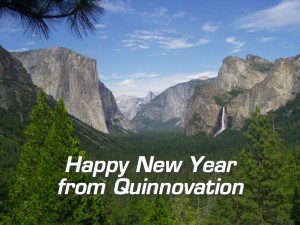I had the pleasure of speaking at the Learning Technologies ’11 conference, talking on the topic of games. I’ve already covered Roger Schank‘s keynote, but I want to pick up on a couple of other things. Overall, however, the conference was a success: good thinking (more below), good people, and well organized.
The conference was held on the 3rd floor of the conference hall, while floors 1 and ground hosted the exposition: the ground floor hosted the learning and skills (think: training) exhibits while the 1st floor held learning technology (read: elearning) vendors. I have to admit I was surprised (not unpleasantly) that things like the reception weren’t held in the exhibit halls. The conference was also split between learning technologies (Day 1) and learning and skills (day 2), so I have to admit being somewhat surprised that there weren’t receptions on the respective floors, to support the vendors, tho’ having a chance to chat easily with colleagues in a more concise environment was also nice.
I’m not the only one who commented on the difference between the floors: Steve Wheeler wrote a whole post about it, noting that the future was above, and the past showing below. At a post-conference review session, everyone commented on how the level of discussion was more advanced than expected (and gave me some ideas of what I’d love to cover if I got the chance again). I’d heard that Donald Taylor runs a nice conference, and was pleased to see that it more than lived up to the billing. There was also a very interesting crowd of people I was glad to meet or see again.
In addition to Roger’s great talk on what makes learning work, there were other stellar sessions. The afore-mentioned Steve did a advanced presentation on the future of technologies that kept me engaged despite a severe bout of jetlag, talking about things you’ve also heard here: semantics, social, and more. He has a web x.0 model that I want to hear more about, because I wasn’t sure I bought the premise, but I like his thinking very much. There was also a nice session on mobile, with some principles presented and then an interesting case study using iPads under somewhat severe(military) constraints on security.
It was hard to see everything I wanted to, with four tracks. To see Steve, I had to pass up Cathy Moore, who’s work I’ve admired, though it was a pleasure to meet her for sure. I got to see Jane Bozarth, but at the expense of missing my colleague Charles Jennings. I got to support our associate Paul Simbeck-Hampson, but at the cost of missing David Mallon talk on learning culture, and so on.
A great selection of talks to hear is better than not. There was also a very interesting crowd of people I was glad to meet or see again. A great experience, overall, and I can happily recommend the conference.

